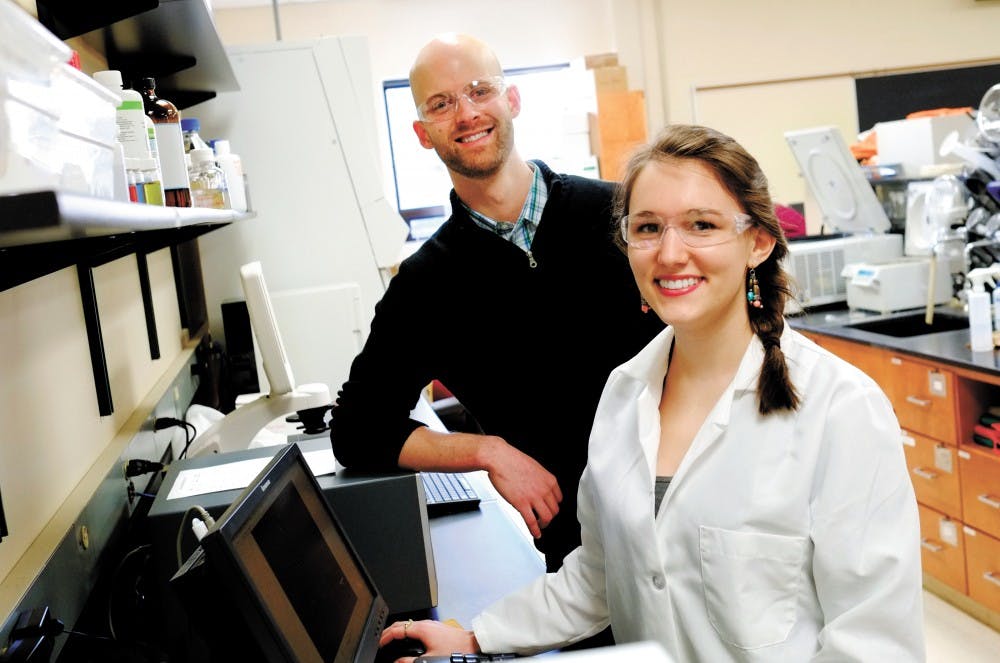Students, faculty awarded $420,085 grant to research tuberculosis

Students have been working in the Dow Science Complex to combat problems with global health in the form of mycobacterium tuberculosis research.
The group consists of 11 students, nine of which are undergraduates and two graduate students. The research is led by the Departments of Chemistry and Biochemistry assistant professor, Benjamin Swarts. The recent $420,085 grant from the National Institute of Health will help the research grow and allows more students to participate.
The research focuses on developing a new method of synthesizing derivatives of a special sugar called trehalose. Without this sugar, the TB bacteria would not be able to live or harm humans. The research could potentially lead to new insights in diagnosing the disease and ways to treat it.
Midland junior Bailey Urbanek has been actively involved in research since summer 2013.
"I knew I wanted to do some form of research so I searched the faculty pages for something that interested me. Dr. Swarts' research really grabbed my attention and I just knew I had to contact him," Urbanek said.
TB is one of the world's deadliest bacterial pathogens and there are approximately 10 million new cases of the disease each year. Treating it has become increasingly difficult since it evolves to be more drug-resistant.
"I'm very passionate about global health," Urbanek said. "TB still affects tons of people today in our country and developing countries. Any way I can help with that interests me. I feel like I am a part of something greater and that tells me I'm definitely on the right track."
Students have the opportunity to perform research even if it does not correspond with their major. They can decide how active they want to be in the lab; typically undergraduate students will invest six to 15 hours a week. At first, they learn basic safety techniques and then get situated with their lab position.
"I just began my research this semester and Dr. Swarts has me working on organic synthesis where I am forming organic molecules using chemistry laboratory techniques," said Walker junior Adrian Rylski. "I have learned a decent amount of basic skills in the few months of research and every day I am more and more independent with work in the lab. My main role is synthesizing a few molecules that are similar in structure, which will later be tested on the mycobacterial cell wall."
Swarts' main focus is synthetic chemistry. He first became involved completing his post-doctoral degree at University of California, Berkley.
"When I first worked with TB at Berkley, I learned a lot about global health issues," Swarts said. "There were very interesting and important problems to solve using chemistry and I learned a lot about TB. I grew a passion for this kind of work."
For students interested in research, the chemistry department is having an informational research night. The event will take place at 2 p.m. Friday in the active learning classroom in Dow Science Complex. Each research group will have their own table set up in the classroom.



